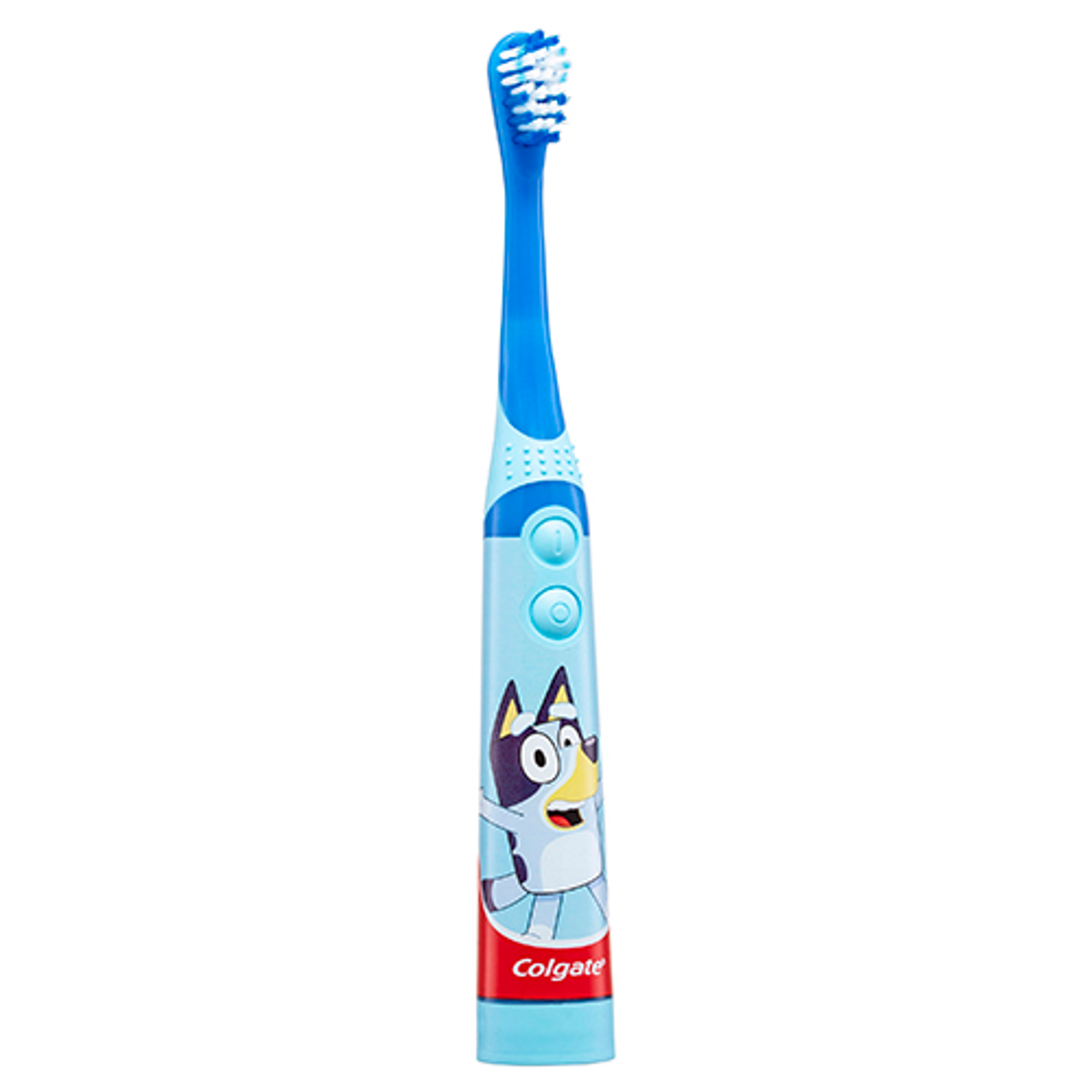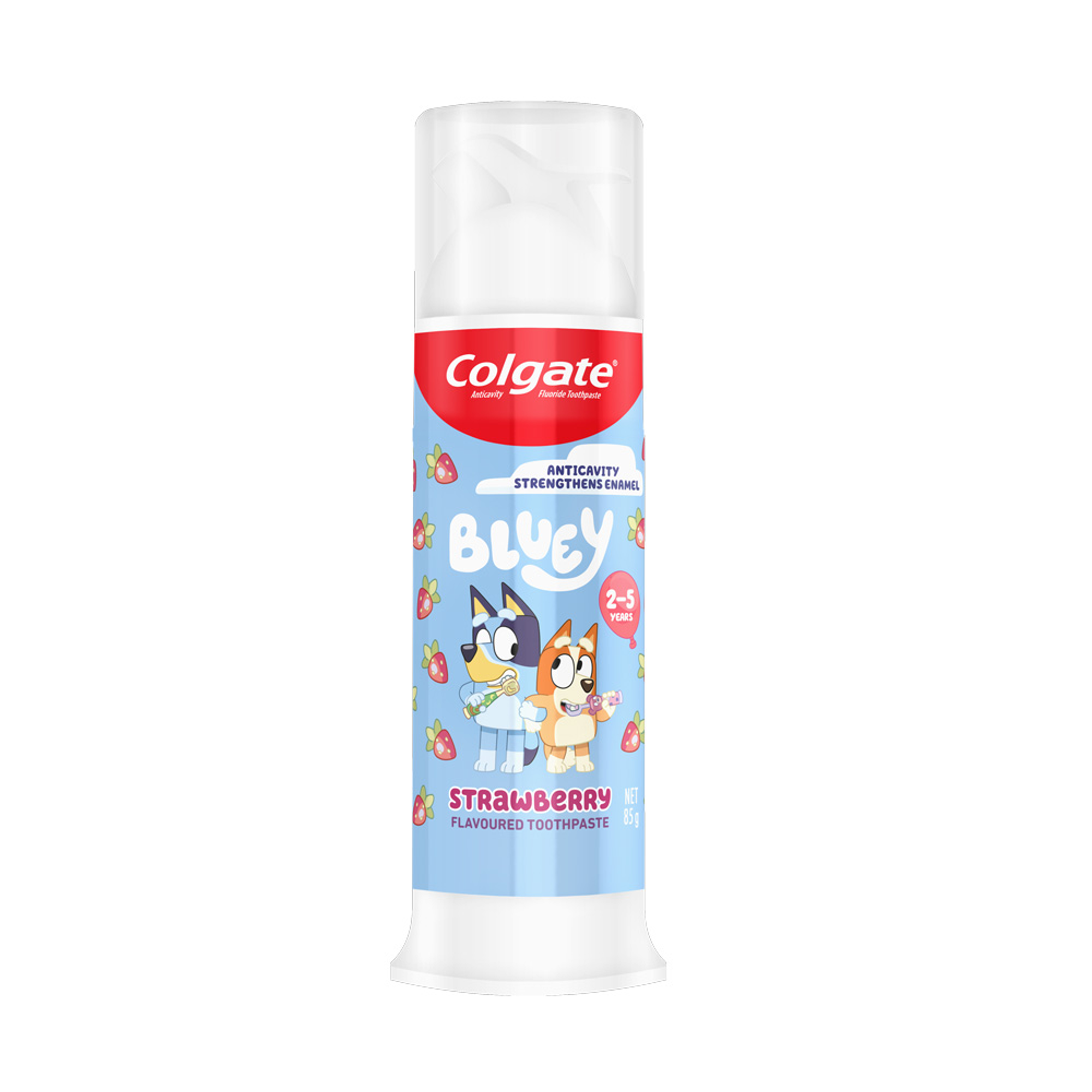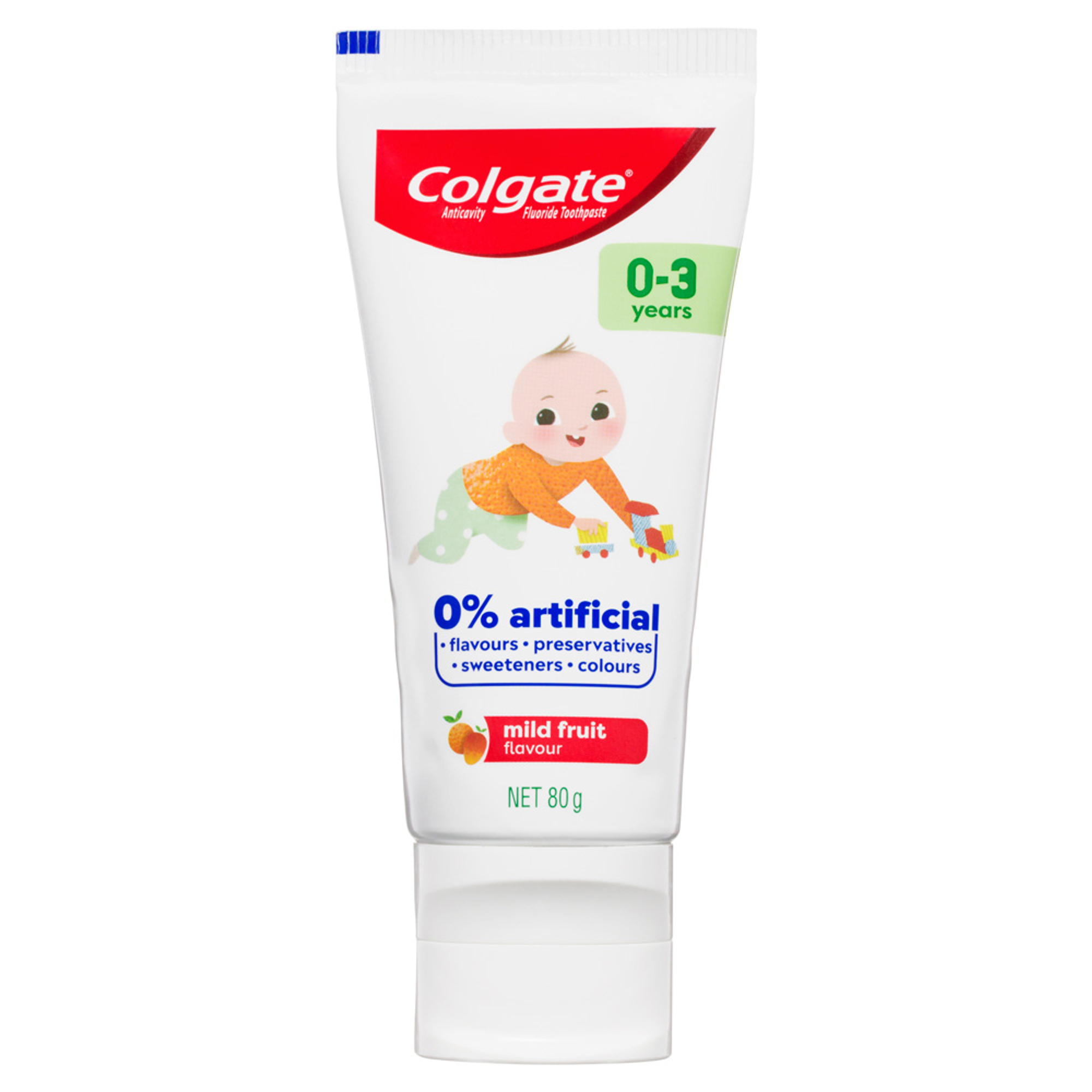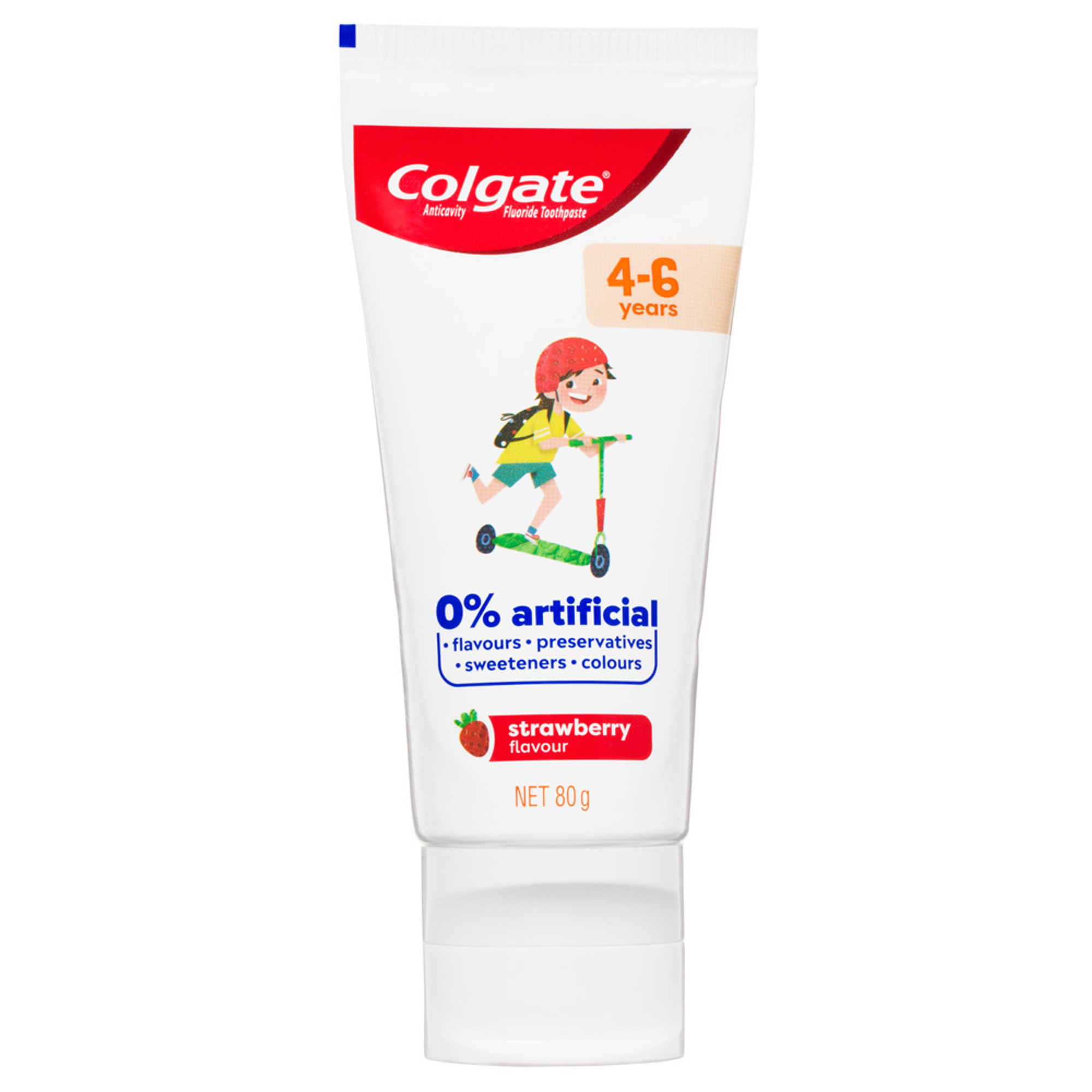-
-

BRUSHING & FLOSSING
How to BrushWhat Is the Right Way to Brush?
Proper brushing takes at least two minutes — that's right, 120 seconds!...

BRUSHING & FLOSSING
How To FlossWhat is the Right Way to Floss?
Proper flossing removes plaque and food particles in places where a toothbrush cannot easily reach... -
Science & Innovation
- Colgate® | Toothpaste, Toothbrushes & Oral Care Resources
- Oral Health
- Baby Cavities: What You Need To Know
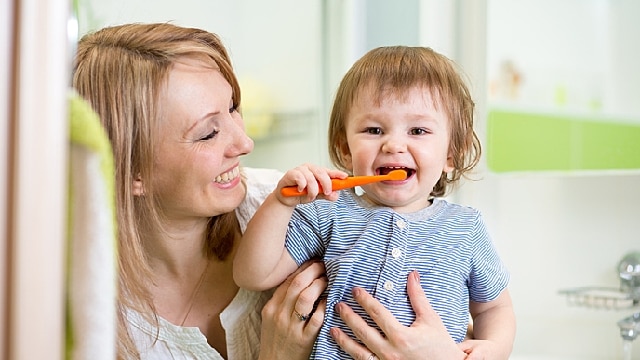

Cavities can start to form as soon as the first tooth appears and can affect your baby’s oral health for years to come.
According to an alarming report by the Australian Institute of Health and Welfare, 42% of Australian children aged 5-10 have had cavities in their primary (baby) teeth, and 25% of kids are currently suffering from untreated decay.
Clearly, it’s never too early to start protecting your little one from tooth decay and cavities. Here’s what you need to know to keep your baby’s teeth healthy.
How Babies Develop Cavities
Healthy WA explains that cavities develop when baby’s teeth are exposed to sugar for long periods. These sugars can come from juice, cordial, soft drinks, sugary foods or honey, but they’re also found naturally in milk, including breast milk.
The bacteria that live in your baby’s mouth thrive on these sugars, and they can build up to form a layer of plaque on the teeth. When it’s exposed to sugar, plaque produces an acid by-product that can eat away at baby’s tooth enamel, which is thinner and softer than that of adults. The result is decay and cavities, or holes, in the teeth.
The Lasting Impact of Baby and Childhood Cavities
In the short term, cavities can cause your baby discomfort and pain. As the tooth erodes, your baby also becomes vulnerable to infection and abscess. Left untreated, cavities can eventually lead to tooth loss.
Losing baby teeth to decay can affect your young child’s nutrition, language development and jaw growth. While the baby teeth will eventually be replaced by adult teeth, the legacy of early tooth decay will stay with your child long afterwards.
The baby teeth guide the placement of the adult teeth, and so premature loss of the baby teeth can leave those permanent teeth crooked or crowded.
Preventing Baby Cavities
Healthy WA recommends beginning your baby’s oral health routine at birth. Use a soft, damp cloth to gently wipe the gums twice a day, switching to brushing with a soft infant toothbrush when the first tooth appears.
They offer the following general advice for preventing cavities:
- Don’t let your baby drink cordial, juice, soft drinks or sweetened liquids from a bottle.
- If your baby takes a bottle to bed, give them cooled, boiled water instead of milk, cordial or juice.
- Replace your baby’s bottle with a cup at 6-12 months old.
- Don’t dip your baby’s dummy in honey or other sweet substances.
- Avoid sweet, sticky snacks.
- Space meals and snacks out to minimise acid exposure.
NSW Health warns against putting food, utensils or dummies in your mouth and then baby’s, explaining that this can transfer cavity-causing bacteria to your baby before the first tooth even arrives.
The ADA recommends booking your baby’s first dentist visit as soon as the first tooth appears, or by the first birthday – whichever comes first. By visiting the dentist as early as possible, you can detect cavities early and discuss strategies to protect baby’s oral health.
What If Your Baby Already Has Tooth Decay Or Cavities?
According to Healthy WA, white marks on the tooth surface close to the gum line are an early sign of tooth decay. More advanced decay appears as yellow-brown or black marks on the teeth, or even visible cavities.
The earlier decay is treated, the better the outcome. If you suspect your baby has tooth decay or cavities, book an appointment with your dentist immediately. The dentist may be able to reverse decay, offer protective treatments, fill cavities, or in extreme cases, extract the tooth.
Thorough, pro-active oral care is the best way to prevent baby cavities. With the help of your dentist, you can ensure your baby’s smile stays happy and healthy throughout childhood and beyond.
This article is intended to promote understanding of and knowledge about general oral health topics. It is not intended to be a substitute for professional advice, diagnosis or treatment. Always seek the advice of your dentist or other qualified healthcare provider with any questions you may have regarding a medical condition or treatment.
Related Products

Helping dental professionals
More professionals across the world trust Colgate. Find resources, products, and information to give your patients a healthier future







